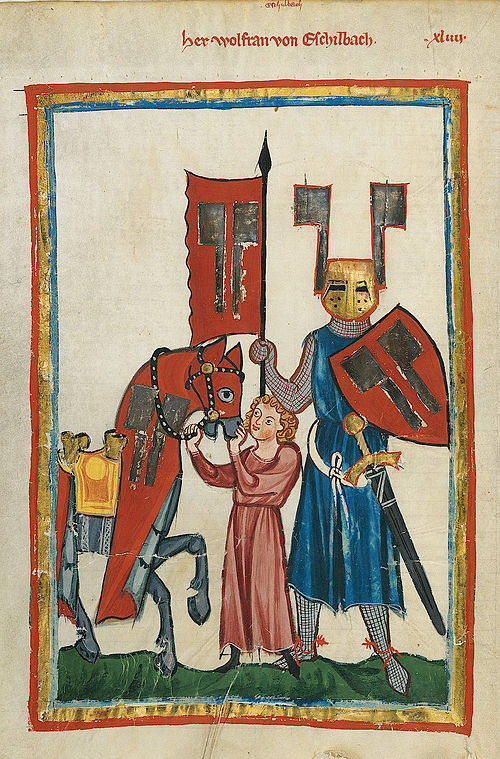Pagenoun
One of the many pieces of paper bound together within a book or similar document.
Pagenoun
One side of a paper leaf on which one has written or printed.
Pagenoun
(figurative) Any record or writing; a collective memory.
Pagenoun
(typesetting) The type set up for printing a page.
Pagenoun
(computing) A screenful of text and possibly other content.
Pagenoun
(Internet) A web page.
Pagenoun
(computing) A block of contiguous memory of a fixed length.
Pagenoun
(obsolete) A serving boy – a youth attending a person of high degree, especially at courts, as a position of honor and education.
Pagenoun
(British) A youth employed for doing errands, waiting on the door, and similar service in households.
Pagenoun
A boy or girl employed to wait upon the members of a legislative body.
Pagenoun
(in libraries) The common name given to an employee whose main purpose is to replace materials that have either been checked out or otherwise moved, back to their shelves.
Pagenoun
A boy child.
Pagenoun
A contrivance, as a band, pin, snap, or the like, to hold the skirt of a woman’s dress from the ground.
Pagenoun
A track along which pallets carrying newly molded bricks are conveyed to the hack.
Pagenoun
A message sent to someone's pager.
Pagenoun
Any one of several species of colorful South American moths of the genus Urania.
Pageverb
(transitive) To mark or number the pages of, as a book or manuscript.
Pageverb
To turn several pages of a publication.
Pageverb
(transitive) To furnish with folios.
Pageverb
(transitive) To attend (someone) as a page.
Pageverb
To call or summon (someone).
Pageverb
(transitive) To contact (someone) by means of a pager or other mobile device.
Pageverb
(transitive) To call (somebody) using a public address system so as to find them.
Pagenoun
A serving boy; formerly, a youth attending a person of high degree, especially at courts, as a position of honor and education; now commonly, in England, a youth employed for doing errands, waiting on the door, and similar service in households; in the United States, a boy or girl employed to wait upon the members of a legislative body. Prior to 1960 only boys served as pages in the United States Congress
Pagenoun
A boy child.
Pagenoun
A contrivance, as a band, pin, snap, or the like, to hold the skirt of a woman's dress from the ground.
Pagenoun
A track along which pallets carrying newly molded bricks are conveyed to the hack.
Pagenoun
Any one of several species of beautiful South American moths of the genus Urania.
Pagenoun
One side of a leaf of a book or manuscript.
Pagenoun
A record; a writing; as, the page of history.
Pagenoun
The type set up for printing a page.
Pageverb
To attend (one) as a page.
Pageverb
To call out a person's name in a public place, so as to deliver a message, as in a hospital, restaurant, etc.
Pageverb
To call a person on a pager.
Pageverb
To mark or number the pages of, as a book or manuscript; to furnish with folios.
Pagenoun
one side of one leaf (of a book or magasine or newspaper or letter etc.) or the written or pictorial matter it contains
Pagenoun
English industrialist who pioneered in the design and manufacture of aircraft (1885-1962)
Pagenoun
United States diplomat and writer about the Old South (1853-1922)
Pagenoun
a boy who is employed to run errands
Pagenoun
a youthful attendant at official functions or ceremonies such as legislative functions and weddings
Pagenoun
in medieval times a youth acting as a knight's attendant as the first stage in training for knighthood
Pageverb
call out somebody's name over a P.A. system
Pageverb
work as a page;
Pageverb
number the pages of a book or manuscript
Squirenoun
A shield-bearer or armor-bearer who attended a knight.
Squirenoun
A title of dignity next in degree below knight, and above gentleman. See esquire.
Squirenoun
A male attendant on a great personage.
Squirenoun
A devoted attendant or follower of a lady; a beau.
Squirenoun
A title of office and courtesy. See under esquire.
Squirenoun
Term of address to an equal.
Squirenoun
(obsolete) A ruler; a carpenter's square; a measure.
Squireverb
To attend as a squire.
Squireverb
To attend as a beau, or gallant, for aid and protection.
Squirenoun
A square; a measure; a rule.
Squirenoun
A shield-bearer or armor-bearer who attended a knight.
Squirenoun
A title of dignity next in degree below knight, and above gentleman. See Esquire.
Squirenoun
A male attendant on a great personage; also (Colloq.), a devoted attendant or follower of a lady; a beau.
Squirenoun
A title of office and courtesy. See under Esquire.
Squireverb
To attend as a squire.
Squireverb
To attend as a beau, or gallant, for aid and protection; as, to squire a lady.
Squirenoun
young nobleman attendant on a knight
Squirenoun
an English country landowner
Squirenoun
a man who attends or escorts a woman
Squireverb
attend upon as a squire; serve as a squire
Squirenoun
a man of high social standing who owns and lives on an estate in a rural area, especially the chief landowner in such an area
Squirenoun
used by a man as a friendly or humorous form of address to another man
Squirenoun
a title given to a magistrate, lawyer, or judge in some rural districts.
Squirenoun
a young nobleman acting as an attendant to a knight before becoming a knight himself.
Squirenoun
a subadult snapper fish (Chrysophrys auratus ).
Squireverb
(of a man) accompany or escort (a woman)
Squireverb
(of a man) have a romantic relationship with (a woman)
Squire
Starting in the Middle Ages, a squire was the shield- or armour-bearer of a knight.Use of the term evolved over time. Initially, a squire was a knight's apprentice.






